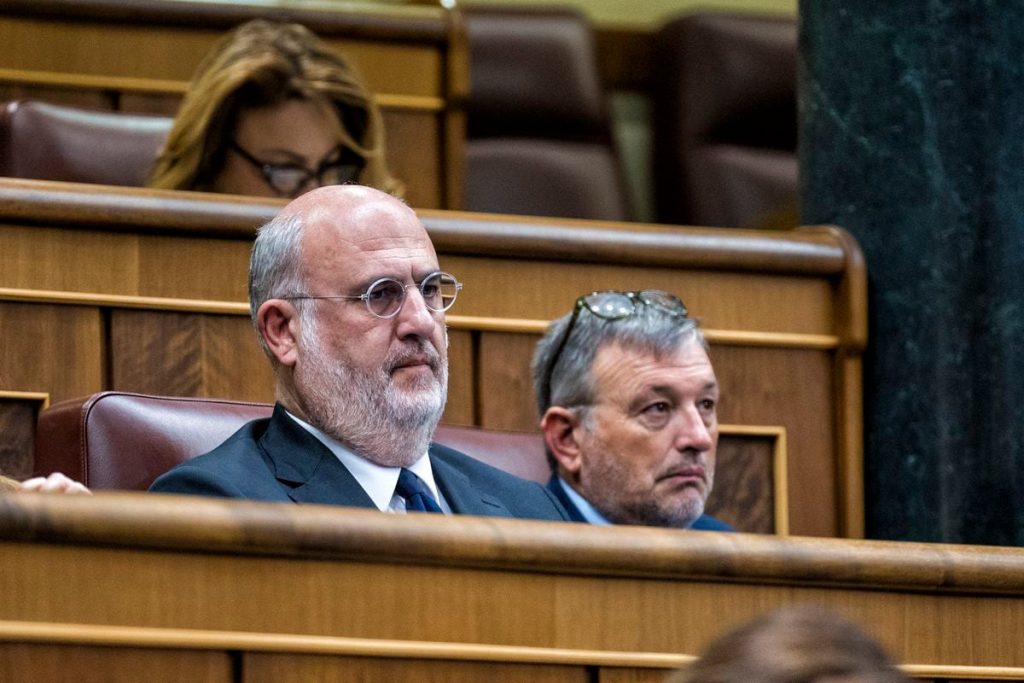This Tuesday, a PP deputy smiled and remarked “it’s the world upside down” after the Territorial Policy Committee in Congress. The PP and Vox had passed a declaration against “linguistic discrimination” of Spanish with Junts absent for the vote. The PP failed to pass a text rejecting unique funding for Catalonia because of Vox’s abstention. After two hours of dull debates, the session ended with six non-binding propositions to vote on, where Junts left before the vote, leaving the opposing parties in the majority.
The approved proposition aims to promote actions to prevent linguistic discrimination and ensure the use of Spanish in all autonomous communities, referencing the linguistic immersion in Catalonia. The PP also presented a proposition to claim interterritorial solidarity as a constitutional value, opposing the singular funding system favored by Catalan separatists. The PSOE countered with an amendment appealing to interregional solidarity without mentioning funding systems, which was rejected by the PP. Vox abstained from voting, leading to the proposal’s rejection and leaving everyone puzzled at the unexpected outcomes in Congress.
The session highlighted the conflicts between political parties over linguistic and funding issues, with surprising alliances and results in the voting process. Vox’s anti-autonomy stance impacted the decision-making and led to unexpected outcomes for both the government and the opposition. The diversity of opinions and strategies within the parties added complexity to the discussions, reflecting the challenges of governance in a fragmented political landscape.
The dynamics of the session demonstrated the unpredictability and complexity of parliamentary debates, with strategic moves and unexpected alliances influencing the outcomes. The clash between nationalist and centralist positions added tension to the discussions, highlighting the ongoing challenges of managing regional diversity within the Spanish political framework. The contrasting priorities and ideologies of the parties reflected the deep-seated divisions within Spanish society, shaping the legislative agenda and decision-making processes in Congress.
In conclusion, the session in Congress showcased the intricate dynamics of Spanish politics, where unexpected alliances and conflicting priorities can lead to surprising outcomes in parliamentary debates. The clash between nationalist and centralist positions highlights the ongoing challenges of managing regional diversity and linguistic identities within the Spanish political landscape. The evolving strategies and alliances among political parties reflect the complex dynamics of governance in a fragmented political system, shaping the legislative agenda and decision-making processes in Congress.


